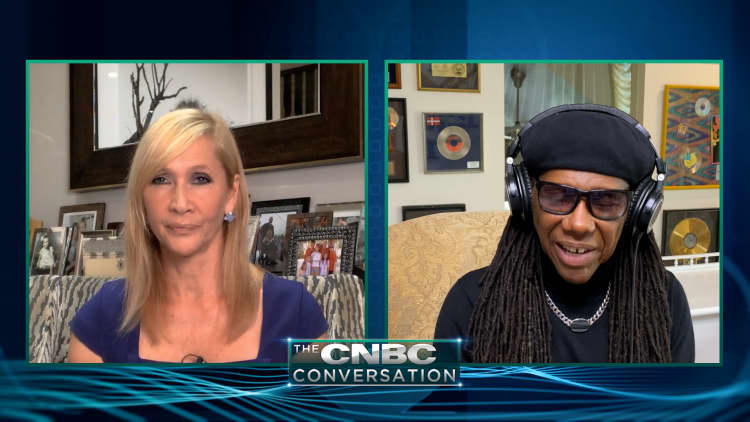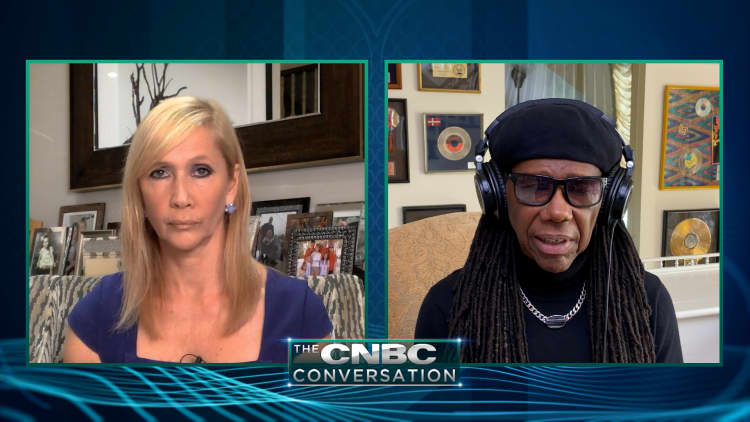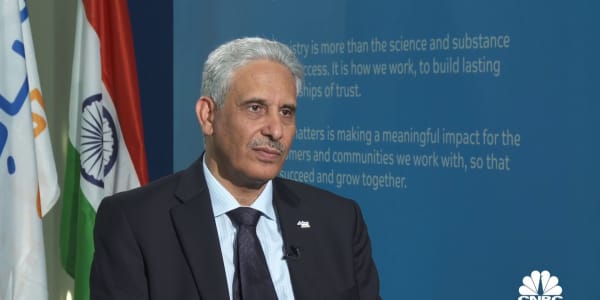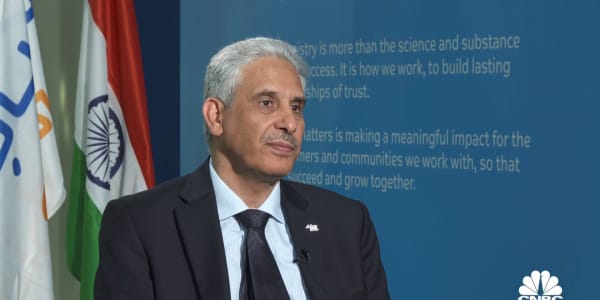Multi-Grammy award-winning Nile Rodgers told CNBC that he doesn't know if his live shows can ever be the same again following the Covid-19 crisis.
The iconic artist, producer and composer has collaborated with many of the world's biggest artists on some of their greatest hits including Madonna's "Like A Virgin," David Bowie's "Let's Dance," Sister Sledge's "We Are Family" and Daft Punk's "Get Lucky."
Rodgers said the highlight of performing live for him was bringing "all these strangers" up on stage to share the experience of what it's like to entertain "tens of thousands of people."
"I get a big kick out of that and I don't know if we're ever going to return to that type of scenario, because what are the insurance policies going to look like now?" he told CNBC earlier this month.
"Are they going to now take into effect that we may make somebody sick inadvertently, and we were just trying to give people a good time? So we have to think about all those sorts of things," he added.

Rodgers, who is also chairman of the Songwriters Hall of Fame and the first-ever chief creative advisor at the legendary Abbey Road Studios in London, recently headlined the virtually-held Festival of Marketing, one of the largest global events for brand marketers.
Racism in the U.S.
The co-founder of internationally-renowned disco group Chic, whose hits include "Le Freak," also spoke to CNBC on the issue of racism and George Floyd, the African-American whose death in May while in the custody of the Minneapolis police sparked protests in the U.S. and around the world.
Rogers said it was "unfortunate" that the issue of racism had "not changed very much" throughout his life and career.
"You're talking about something that's very complicated and something that almost every American knows. Racism is ingrained in our society. And we all know it, I mean people don't like to admit it, but we all know it," he said.
"This is a long-standing problem in America, because we actually have never had that reconciliation type of discussion, and people seem to be afraid of it," he said.
"And the interesting thing is that Black people are not afraid of it, we're fine to have that conversation, but I think that White people feel very nervous about it and I'm not really sure why," he continued.

Rodgers was born in the Lower East Side of New York and became a subsection leader of a local branch of the Black Panther Party — founded in California in 1966 in response to racial inequalities and oppression — in his teenage years.
Rodgers said he had faced confrontation many times throughout his life and had been "lucky."
"I've been in situations where very aggressive White people have confronted me with pretty harsh language and guns and things, I mean all my life ... too many to even mention, and every single time that that's happened, I was able to move it into the dialogue phase," he said.
"But I had to be smart enough and lucky enough, don't think that I'm some genius, I was lucky that they just didn't shoot or pummel me, that I was able to get it to the dialogue phase," he added.
The music icon was speaking during the U.K.'s Black History Month, held every October. The annual celebration of events and achievements is held in the U.S. each February, after being officially designated a national observance in 1976 President Gerald Ford.
Asked if it seemed appropriate to only mark such events once a year around the world, Rodgers said, "Black history, it's really just American history and in a strange way I don't say I feel offended, we should learn more about history."





